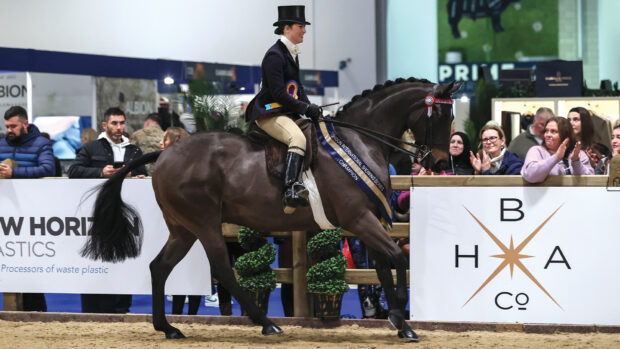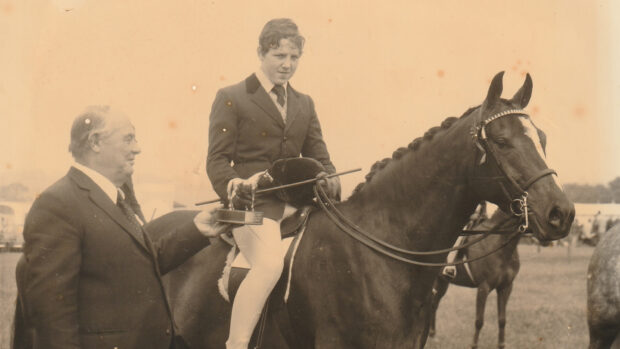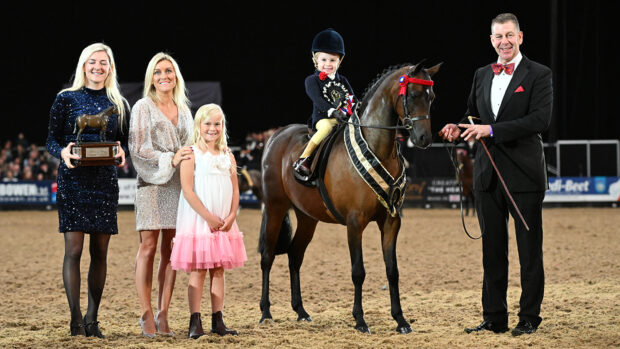FEI eventing judge Christian Landolt explains the role of the ground jury members at international events – and the pressures that are involved: “We don’t just judge the dressage”
I am often asked why I became an FEI eventing judge. The answer is that it happened a little by accident.
I came back from competing at Luhmühlen one year and was disappointed with my results, particularly my dressage scores. I had a moan to my then trainer Stephen Clarke. He suggested I became involved on the other side of the sport, to become a judge and have the possibility to do good as an FEI (international horse sport) official.
Without further thought, I embarked on the process. A few years later, with all my training and exams completed, I was a fully fledged FEI eventing judge. In training for and taking on this role, I discovered a totally new world full of rules, responsibilities of which I was unaware, challenges and decisions carrying a great weight for the riders and for the sport.
It was scary, yet exciting, and thrilling to be part of and be able to give something back to eventing. I realised then there was so much more to the sport that I thought I knew well as a rider.
Now I relish the challenges, and every time I arrive at an event I wonder what is in store, what unexpected situation will be thrown at me. The unexpected enables me to carry on learning and developing as a human being.
A week-long role
I often smile when, on the Sunday of a competition, riders seem surprised to see me still there. As FEI officials, we are present for the duration of the event with a multitude of tasks; we are not just judging dressage.
Typically, our involvement with an event starts some weeks prior with exchanges of emails and establishing good communication between the various officials and organisers.
Our week at a long format three-day event starts with walking the cross-country course with the course-designer and technical delegate, and approving it. We need to make sure it is fair, safe and up to the standard required. Sometimes alterations are required.
We then attend meetings on logistics and safety before the riders’ meeting, where all the relevant information is shared.
The horse inspection follows, where we work closely with the veterinary team. It’s an exciting moment as we see the horses that we will judge for the first time. Two long days of dressage judging usually come next, during which we also continue familiarisation with the site and the cross-country.
Saturday is the biggie, the cross-country day. Any queries about flags, crossing of tracks, dangerous riding, potential horse abuse and anything unexpected are handed to us.
We usually sit at cross-country control and deal with the information that this hub of information receives. More often than not, we need to take rapid decisions and so we are under constant pressure, sometimes also coping with failing technology.
We need to apply the letter of the rules, but also be fair to all involved. Some of our decisions can determine a gold medal or not. The weight of responsibilities is never lost! Justice and fairness must prevail and we all do our best to succeed, but we are humans, after all. Usually the issues are resolved satisfactorily – although it is well known that only winning riders like judges.
One example of immediate action is in case of dangerous riding. Speed is vital to prevent an accident, yet it is paramount to have enough accurate information to make a decision.
Once the decision is made, we need to stop the competitor on course at a designated fence, which is the most difficult thing to achieve efficiently, regardless of the level of competition. The procedure is simple, but all too often compromised by the requests for confirmation by the controller or fence judge and poor radio network. This means the rider may already have jumped the fence where we wanted him or her stopped, and so the process starts again at another jump, adding to the overall pressure of the moment.
Finally, on Sunday we have the second horse inspection, we walk the showjumping course and approve the track. We finish our week by judging the showjumping, hoping there will be no appeal to be dealt with that day.
We have full-on weekends but we do our jobs with passion and integrity. I would recommend to any of you to consider becoming an FEI official as, despite the lack of remuneration, there is much to be gained and learnt, not least making friends for life.
- This exclusive column is also available to read in Horse & Hound magazine, on sale Thursday 4 August
You may also be interested in:

12 secrets of top equestrian team managers – and what we can learn from them too

Mary King hands two horses to daughter Emily to event as she recovers from injury

Eventing World Championships tickets 2022: your full guide to attending in person

Subscribe to Horse & Hound magazine today – and enjoy unlimited website access all year round
Horse & Hound magazine, out every Thursday, is packed with all the latest news and reports, as well as interviews, specials, nostalgia, vet and training advice. Find how you can enjoy the magazine delivered to your door every week, plus options to upgrade your subscription to access our online service that brings you breaking news and reports as well as other benefits.




